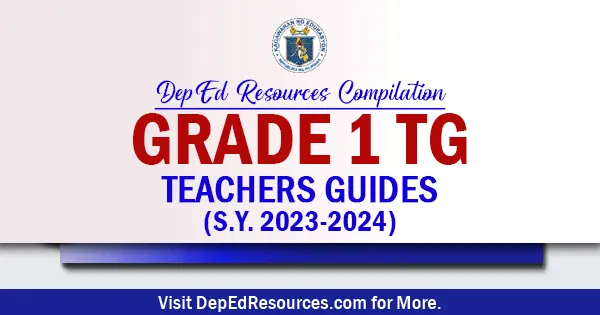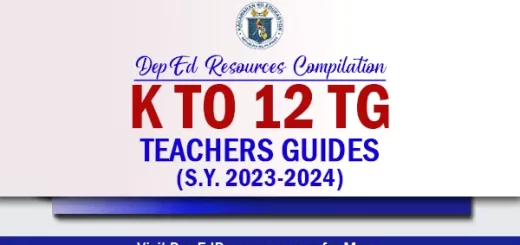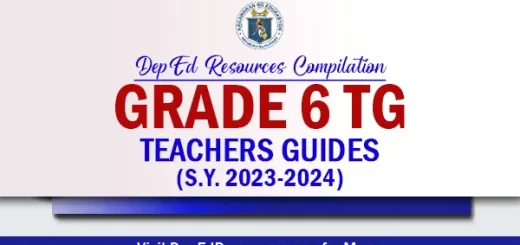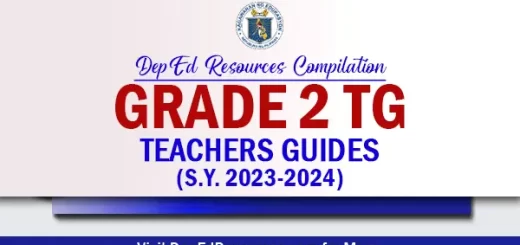Grade 1 Teachers Guide | K to 12 Curriculum
More Grade 1 Teachers Guides will be uploaded soon. You can always visit this page to check for newly uploaded files. Thank you.
The K-12 Language Arts and Multiliteracies Curriculum is anchored on the following language acquisition, learning, teaching and assessing principles. All languages are interrelated and interdependent. Facility in the first language (L1) strengthens and supports the learning of other languages (L2). Acquisition of sets of skills and implicit metalinguistic knowledge in one language (common underlying proficiency or CUP) provides the base for the development of both the first language (L1) and the second language. It follows that any expansion of CUP that takes place in one language will have a beneficial effect on the other language(s). This principle serves to explain why it becomes easier and easier to learn additional languages.
Language acquisition and learning is an active process that begins at birth and continues throughout life. It is continuous and recursive throughout students’ lives. Students enhance their language abilities by using what they know in new and more complex contexts and with increasing sophistication (spiral progression). They reflect on and use prior knowledge to extend and enhance their language and understanding. By learning and incorporating new language structures into their repertoire and using them in a variety of contexts, students develop language fluency and proficiency. Positive learning experiences in language-rich environments enable students to leave school with a desire to continue to extend their knowledge, skills and interests.
Learning requires meaning. We learn when we use what we know to understand what is new. Start with what the students know; use that to introduce new concepts. They use language to examine new experiences and knowledge in relation to their prior knowledge, experiences, and beliefs. They make connections, anticipate possibilities, reflect upon ideas, and determine courses of action.
Learners learn about language and how to use it effectively through their engagement with and study of texts. The term ‘text’ refers to any form of written (reading and writing), oral (listening and speaking) and visual communication involving language. The texts through which students learn about
language are wide-ranging and varied, from brief conversations to lengthy and complex forms of writing. The study of specific texts is the means by which learners achieve the desired outcomes of language, rather than an end in itself. Learners learn to create texts of their own and to engage with texts produced by other people.
Successful language learning involves viewing, listening, speaking, reading and writing activities. Language learning should include a plethora of strategies and activities that helps students focus on both MEANING and ACCURACY.
Language learning involves recognizing, accepting, valuing and building on students’ existing language competence, including the use of non-standard forms of the language, and extending the range of language available to students. Through language learning, learners develop functional and critical literacy skills. They learn to control and understand the conventions of the target language that are valued and rewarded by society and to reflect on and critically analyze their own use of language and the language of others.

Grade 1 Teachers Guide | K to 12 Curriculum
ARALING PANLIPUNAN 1 Teachers Guide
- GRADE 1 Teachers Guide in ARALING PANLIPUNAN – 1st & 2nd Quarter
- GRADE 1 Teachers Guide in ARALING PANLIPUNAN – 3rd Quarter
- GRADE 1 Teachers Guide in ARALING PANLIPUNAN – 4th Quarter
ENGLISH 1 Teachers Guide
ESP 1 Teachers Guide
FILIPINO 1 Teachers Guide
- GRADE 1 Teachers Guide in FILIPINO – 1st Quarter
- GRADE 1 Teachers Guide in FILIPINO – 1st & 2nd Quarter
- GRADE 1 Teachers Guide in FILIPINO – 4th Quarter
MAPEH Teachers Guide
- GRADE 1 Teachers Guide in ART – 1st & 2nd Quarter
- GRADE 1 Teachers Guide in HEALTH – 1st & 2nd Quarter
- GRADE 1 Teachers Guide in MUSIC – 1st & 2nd Quarter
- GRADE 1 Teachers Guide in PE – 1st & 2nd Quarter
MATHEMATICS Teachers Guide
MTB –MLE 1 Teachers Guide
- MTB –MLE 1 (Tagalog) – Week 21
- MTB –MLE 1 (Tagalog) – Week 22
- MTB –MLE 1 (Tagalog) – Week 23
- MTB –MLE 1 (Tagalog) – Week 24
- MTB –MLE 1 (Tagalog) – Week 25
- MTB –MLE 1 (Tagalog) – Week 26
- MTB –MLE 1 (Tagalog) – Week 27
- MTB –MLE 1 (Tagalog) – Week 28
- MTB –MLE 1 (Tagalog) – Week 29
- MTB –MLE 1 (Tagalog) – Week 30
- GRADE 1 Teachers Guide in MTB – 4th Quarter
MTB Teachers Guide
New! MELC Based Teachers Guides
- Teachers Guide for Teachers in Using the MELCs in KINDERGARTEN
- Teachers Guide for Teachers in Using the MELCs in ARALING-PANLIPUNAN
- Teachers Guide for Teachers in Using the MELCs in ENGLISH
- Teachers Guide for Teachers in Using the MELCs in EPP-TLE
- Teachers Guide for Teachers in Using the MELCs in ESP
- Teachers Guide for Teachers in Using the MELCs in FILIPINO
- Teachers Guide for Teachers in Using the MELCs in MATH
- Teachers Guide for Teachers in Using the MELCs in MOTHER-TONGUE
- Teachers Guide for Teachers in Using the MELCs in SCIENCE
MORE FREE TO DOWNLOAD FILES HERE
Budget of Work | Bulletin Board Display | Curriculum Guide | Daily Lesson Log | DepEd Announcements | DepEd Memo | DepEd News | DepEd Official Statements | DepEd Order | DepEd Press Releases | Designs and Templates | Detailed Lesson Plan | Diagnostic Test | Download Files Here | Exams | Forms | Graduation | Instructional Materials | Latest News | Latest! | Learners Material | Periodical Tests | Powerpoint Presentations | Reviewers | RPMS | School Forms | Summative Test | Teachers Guide | Teachers Manuals | Teachers Tools | Weekly Daily Lesson Log | Workbooks
These daily lesson log were made in compliance with the Department of Education format.
DepEd Resources credits these files to all the owners and authors as well as those who sent us this files for posting. We will always be thankful of you. You make DepEd Resources possible for our beloved teachers .
Please LIKE and SHARE so everyone would benefit from these files. Thank you!
LIKE US on Facebook! Click Here.
“I cannot do all the good that the world needs. But the world needs all the good that I can do.”
―
 Learn about the information we collect and how it's used.
Learn about the information we collect and how it's used. Discover how we protect your data.
Discover how we protect your data. Understand your rights and choices regarding your personal information.
Understand your rights and choices regarding your personal information.















A big help .tnx po